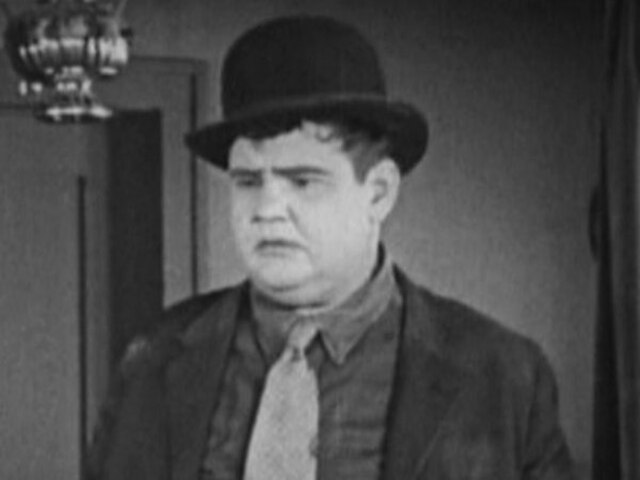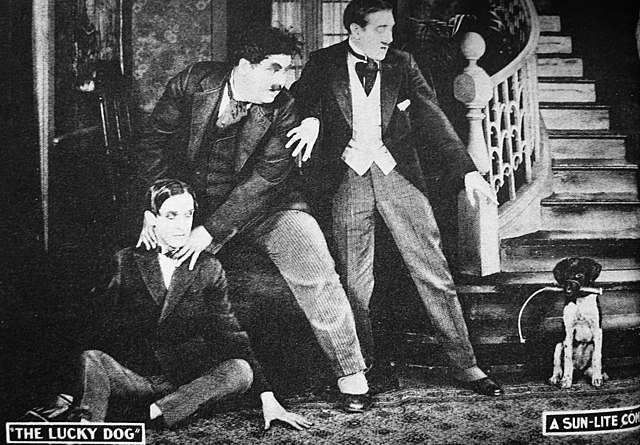The Music Box is a Laurel and Hardy short film comedy released in 1932. It was directed by James Parrott, produced by Hal Roach and distributed by Metro-Goldwyn-Mayer. The film, which depicts the pair attempting to move a piano up a long flight of steps, won the first Academy Award for Best Live Action Short (Comedy) in 1932. In 1997, it was selected for preservation in the National Film Registry by the Library of Congress as being "culturally, historically, or aesthetically significant". The film is widely seen as the most iconic Laurel and Hardy short, with the featured stairs becoming a popular tourist attraction.
Lobby card, 1932
The stairs in 2009
Downward view, 2010
Sign at top of hill, Descanso Drive
Laurel and Hardy were a British-American comedy team during the early Classical Hollywood era of American cinema, consisting of Englishman Stan Laurel (1890–1965) and American Oliver Hardy (1892–1957). Starting their career as a duo in the silent film era, they later successfully transitioned to "talkies". From the late 1920s to the mid-1950s, they were internationally famous for their slapstick comedy, with Laurel playing the clumsy, childlike friend to Hardy's pompous bully. Their signature theme song, known as "The Cuckoo Song", "Ku-Ku", or "The Dance of the Cuckoos" was heard over their films' opening credits, and became as emblematic of them as their bowler hats.
Stan Laurel, c. 1930
Oliver Hardy without his trademark moustache in Yes, Yes, Nanette (1925)
Laurel and Hardy in The Lucky Dog (1921)
Laurel and Hardy with Lupe Vélez in Hollywood Party (1934)








